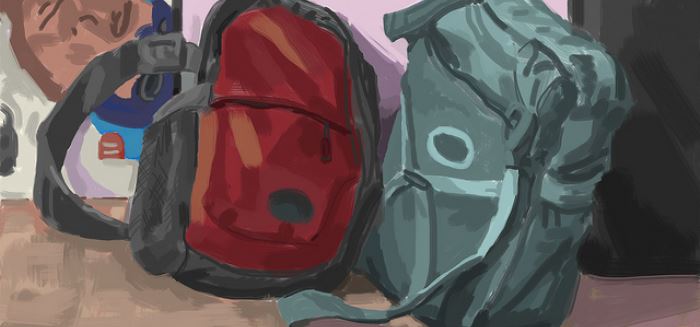In recent months, I’ve repeatedly been drawn to questions that connect race and stewardship. To blindly approach white privilege as a “gift” to be stewarded seems simplistic, and yet the presence of racial bias, inequities, and the church’s continued role in them, means we must respond in some way.
Last summer, after the shooting at Mother Emanuel AME Church in Charleston, the Rev. Elizabeth Eaton, Presiding Bishop of the ELCA, wrote the following:
I urge all of us to spend a day in repentance and mourning. And then we need to get to work. Each of us and all of us need to examine ourselves, our church and our communities. We need to be honest about the reality of racism within us and around us. We need to talk and we need to listen, but we also need to act. No stereotype or racial slur is justified. Speak out against inequity…
In today’s post, Tom Fiebiger lends his hand at just that as he considers stewardship, the church, and white privilege. Indeed, we have much work to do, but it is holy work.
Yours truly,
Adam Copeland, Center for Stewardship Leaders
The Stewardship of White Privilege
Tom Fiebiger
When I served as president of two Lutheran congregations, one small and one large, we exhaustively explored stewardship. Or so I thought. We never named white privilege, much less the stewardship of white privilege.
My faith journey as a follower of our itinerant, mid-eastern preacher of color calls for understanding white privilege.
In 1988, Peggy McIntosh published an article titled White Privilege: Unpacking the Invisible Knapsack and became one of the first white persons to actually write about what people of color had long described — how whites benefit from unearned privileges everyone else is simply not afforded. McIntosh likens white privilege to an invisible, weightless knapsack of assets and resources given just because she was born white in her time and place in the US.
McIntosh writes: “It seems to me that obliviousness about white advantage, like obliviousness about male advantage, is kept strongly inculcated in the United States so as to maintain the myth that democratic choice is equally available to all.”
My dictionary defines stewardship as the “careful and responsible management of something entrusted to one’s care.” In church communities we describe faithful stewardship of our gifts as sharing time, talents, and possessions. My definition of stewardship and possessions has evolved, including my possession of white privilege, as I have become more involved in anti-racism work through my Minneapolis church, where we actively support Black Lives Matter (BLM).
I had not seen my own white privilege for the valuable possession it is and the ease it has provided. Why not? Perhaps because I could choose not to. Can seeing our white privilege as a “gift” awaken us to our common sinfulness and brokenness? That awakening could make this a kairos moment, an opportunity to acknowledge that privilege and be a faithful steward of it.
Scripture is rich with language to support this idea. Luke 12:48: “From everyone who has been given much, much will be demanded; and from the one who has been entrusted with much, much more will be asked.” What is demanded of me, both male and white?
In Matthew 6:21 we find, “Where your treasure is, there your heart will be also.” I challenge those of us white people of faith, who participate consciously or unconsciously in the systemic racism in our communities, to become curious and ask tough questions…like Jesus did.
As 1 Peter 4:10 calls, “[e]ach of you should use whatever gifts you have received to serve others, as faithful stewards of God’s grace in its various forms.” My white privilege allows me to go to the department store carefree, unlike my former client, a black professor at a local university followed by a white clerk. My black friends reference “driving while black,” knowing they are going to be pulled over by police, particularly if driving in traditionally white neighborhoods. The list goes on and on (if we choose to be honest about our history and today’s reality).
In a blog post, “Beyond a White Privilege Model,” Drew Hart aptly notes the failure in the white privilege stewardship model in that it “inherently affirms and utilizes the very thing that it is called to resist and counter.” Hart states that we have missed the mark if the answer to our racial problems is that white people must run things, call the shots, and be “saviors to the world.”
Maybe our stewardship of white privilege looks like relinquishing seats on boards to people of color? Does it look like empowering people of color to “run things”? Maybe it means asking hard questions, challenging broken economic, educational, and justice systems that perpetuate racism.
We can also question our own implicit racist responses to things we don’t immediately understand. Rather than asking why BLM protestors inconvenience us by shutting down the interstate, maybe Christ would call us to ask when was the last time we were inconvenienced — because we’re white?
And we can pray.
More Information
Tom Fiebiger is a recovering civil rights lawyer and politician, having served a term in the North Dakota Senate. His God has a big tent and is more about grace than judgment. His blog can be found at http://www.tomfiebiger.com/.

